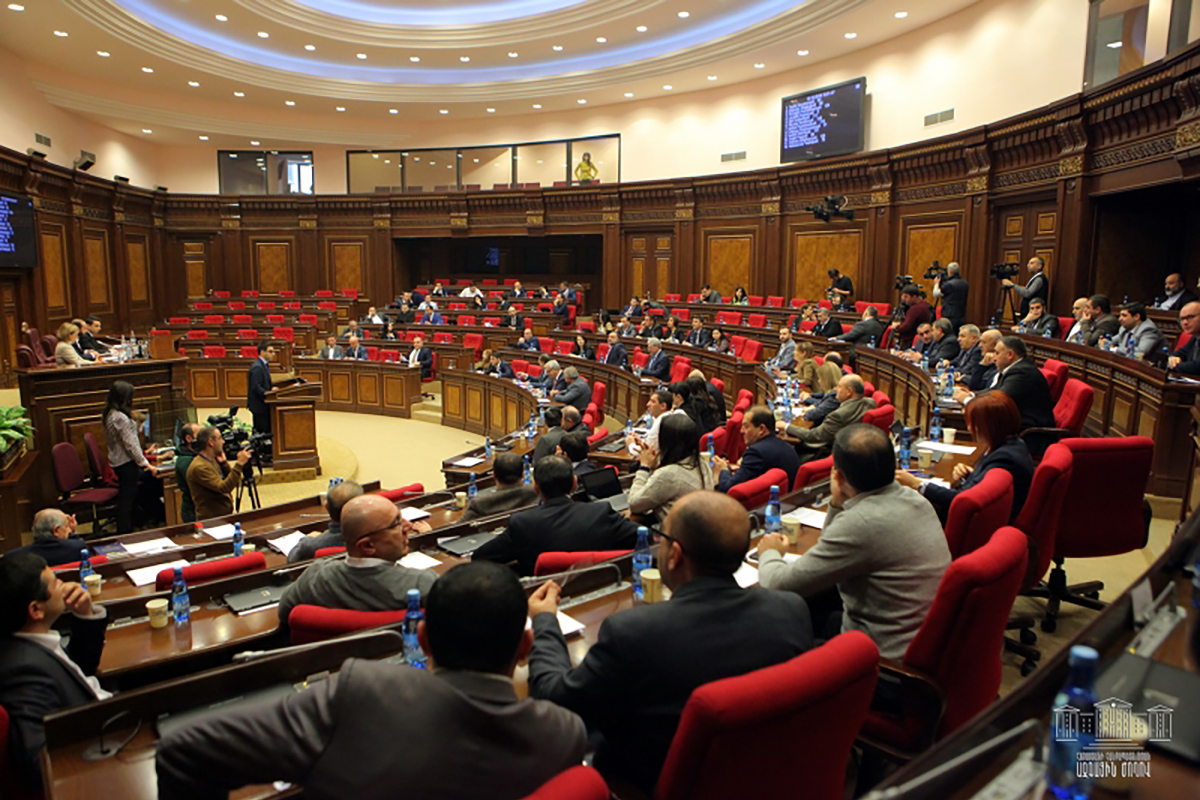

A draft law that would give Armenian police the right to monitor people’s phone conversations, so long as they receive approval from a court, has passed its first hearing in parliament.
The draft bill, passed by parliament on 10 December, must still go through a final second hearing.
Armenia’s police have always had the right to tap phone calls, but only if they received court approval and the go-ahead from the National Security Service (NSS). Under the new law, the police would no longer require permission from the NSS.
The co-authors of the bill, My Step MPs Armen Khachatryan and Sipan Pashinyan, have claimed that the bill will help to increase the effectiveness of police investigations and will help them solve cases more quickly.
In addition to the NSS and the police, the only other body that is permitted to legally monitor phone calls are prison administrations, and only within their own walls.
The draft bill would create a unit within the police to carry out phone surveillance. This department would also oversee internet surveillance.
Too much power?
The draft bill has been widely debated online with experts and MPs chiming in on its appropriateness.
On 12 December a discussion was held surrounding the nature of the bill at the Hodvac 3 press club with MPs Armen Khachatryan and Sipan Pashinyan, as well as the head of local rights group the Helsinki Citizens’ Assembly Vanadzor Office, Artur Sakunts, and ethnographer Hranush Kharatyan.
During the discussion, Khachatryan claimed the bill would lighten the workload of the NSS and allow them to allocate their resources on more useful and productive issues.
Khachatryan added that ‘80% of crimes’ were solved by the police, rather than the NSS, anyway.
‘The police require telephone surveillance the most, however, they are dependent on the NSS’, he said. ‘We are trying to give the police their own tools to productively carry out its investigations.’
When asked if the police can now secretly listen in on the NSS without its permission, Sipan Pashinyan stated that the aim of the bill was not for one state body to eavesdrop on another, but rather concerns individuals that have committed large and serious crimes.
‘The question should be, “can the police or NSS officers be investigated for such crimes?”’ Pashinyan asked, before answering his own question in the affirmative.
Hranush Kharatyan expressed disapproval of the draft bill.
‘What concerns me about this bill is that I believe the NSS is not supervised by the state anymore. It has become a separate body’, she said. ‘The state needs an inspection body that it trusts. Maybe, only in this case, I would tolerate allowing the police to undertake telephone surveillance.’
The two MPs claimed that the government was trying to carry out systemic changes and that this draft bill was just a small part of those changes, more of a ‘technical change.’
After the discussion, Sakunts and Kharatyan gave an interview to CivilNet in which they continued to criticise the draft bill. Sakunts claimed that the state was arming an institution that still needs systemic reforms, and as such, the bill was risky.
‘It’s like a nuclear weapon in the hands of North Korea compared to it being in the hands of France. The latter has the proper legal tools to regulate and supervise that weapon, whereas the former [does not].’ Sakunts said.
Kharatyan raised concerns that there were no laws in place ensuring that telephone surveillance would not be abused by the police.
Both agreed that there needed to be wide-ranging and systemic reform of the police before they were given easy access to telephone surveillance.
The draft bill will go before parliament for its second hearing early next year.









